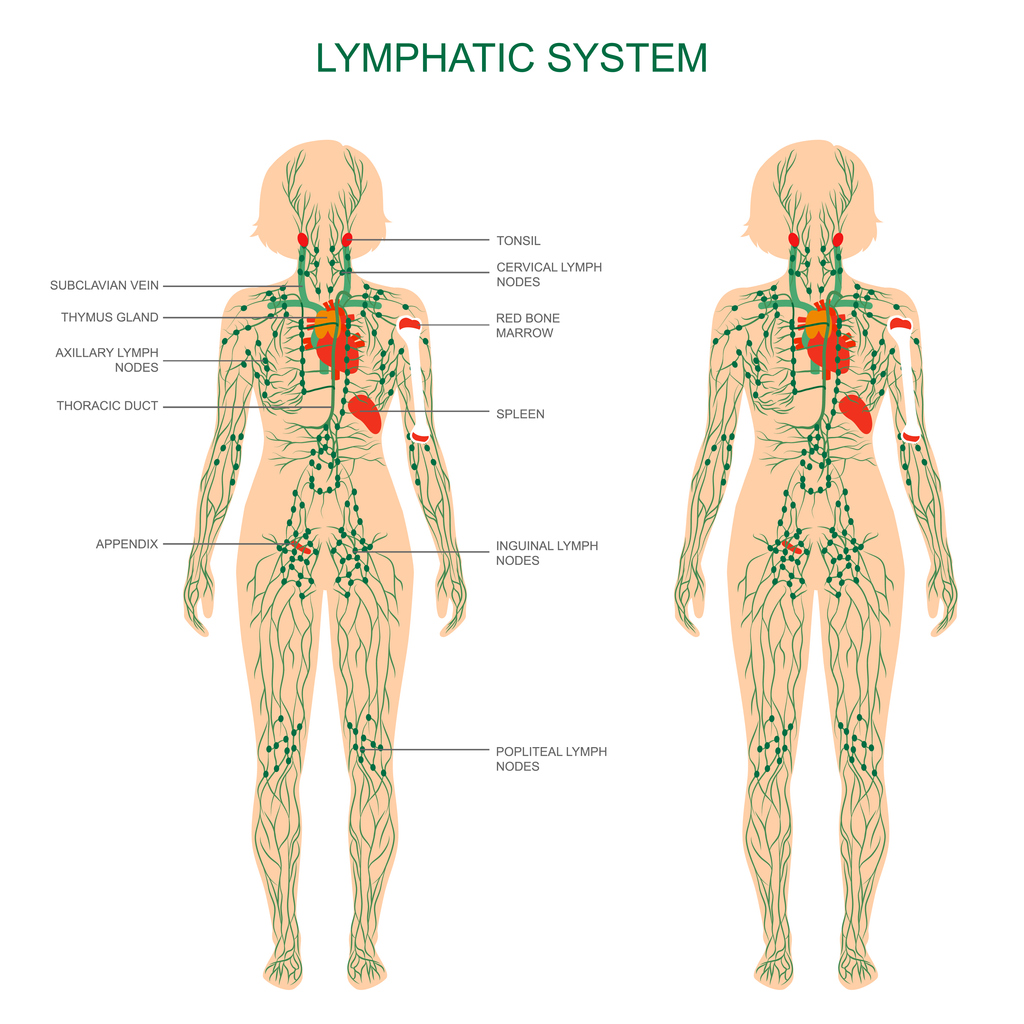Our Amazing Lymphatic System

While most of us are familiar with the cardiovascular system, consisting of our heart and blood vessels, there is another circulatory system in our bodies that often goes unnoticed—the lymphatic system. This intricate network of vessels transports vital bodily fluid and safeguards us against infections. Surprisingly, this system is twice the size and manages double the volume compared to our cardiovascular system.
Picture the lymphatic system as a drainage system, tirelessly working to eliminate waste left behind by other bodily systems. It courses through our bodies like rivers, propelling interstitial fluid that resides just beneath the skin’s surface. The lymph vessels, equipped with one-way valves, rhythmically open and close in a gentle wave-like motion, directing lymphatic fluid towards the clusters of lymph nodes found in the neck, armpits, abdomen, spleen, and inguinal regions. Within these nodes, toxins are filtered out, and immune cells such as white blood cells, lymphocytes, and macrophages are produced before the fluid is returned to the bloodstream.
The lymphatic system plays a central role in our immune system, combatting infections. It serves as the body’s defense mechanism, warding off illness-causing germs, bacteria, viruses, and fungi. By generating specialized white blood cells known as lymphocytes, the system bolsters our immunity, producing antibodies that orchestrate immune responses, shielding our body from disease.
Moreover, the lymphatic system aids in the elimination of toxins and impurities from the body, facilitating their removal through perspiration, bowel movements, urine, and even our breath. Additionally, it actively contributes to our digestion by absorbing fats and fatty acids from our intestines and transporting them back to the bloodstream, where they can be utilized as fuel.
Remarkably, the lymphatic system not only drains fluid back into the bloodstream but also safeguards the delicate fluid balance within our bodies. By collecting, purifying, and draining excess fluids, it prevents tissues from swelling and maintains equilibrium.
In this intricate symphony of bodily functions, the spleen takes on a crucial role. As it filters blood, this organ eliminates old red blood cells and replaces them with new ones produced in the bone marrow, ensuring the vitality of our circulation.
When the lymphatic system is not functioning properly, it can put your body at risk for certain diseases that affect the lymph nodes, spleen or other parts of the lymphoid tissue, such as:
- Lymphedema is a chronic swelling in one arm or leg caused by too much lymph fluid. Many people develop this disorder following cancer therapy.
- Lymphadenopathy is a condition where the lymph nodes become swollen or enlarged.
- Lymphoma is cancer that starts in the lymph nodes when lymphocytes change and multiply at an out-of-control rate.
- Splenomegaly is a disease (usually caused by a viral infection) that causes the spleen to swell several times its normal size.
It has also been found that there are many things that can cause your lymphatic system to become congested and slow down, such as:
- heavy metals
- glyphosate
- biotoxins/mycotoxins
- lyme/viruses/pathogens
- scars
- lack of movement
- dental infections
- EMF
- poor sleep
- poor hydration
People with lymphatic system diseases can greatly benefit from Complete Decongestant Therapy (CDT) which combines Manual Lymphatic Drainage (MLD) and Compression Therapy, offering a comprehensive approach to managing their condition. In addition, individuals with a congested system have also discovered the advantages of MLD. When the body is burdened with biotoxins such as mold, Lyme disease, or other viruses, the lymphatic flow tends to slow down, leading to stagnation. As a result, the body becomes unable to effectively eliminate toxins. By promoting lymph flow through MLD, individuals undergoing healing protocols can find relief from various symptoms they may be experiencing.

